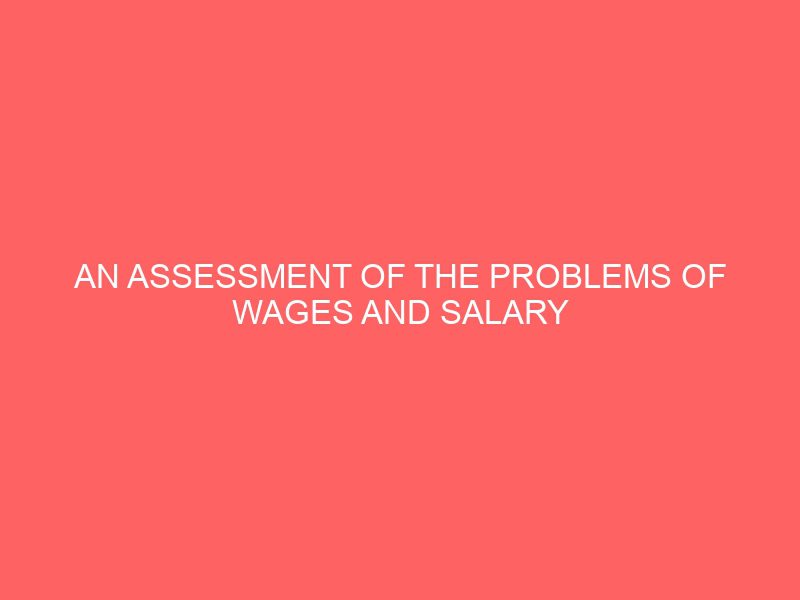Description
Abstract
This project An assessment of the problems of wages and salary administration in a privatized firm, case study of Abuja electricity distribution company Bida branch, Niger state. Wages and salary administration in Nigeria has been a subject of immense controversy, if unresolved, in the context of Nigeria politico-administrative set up for several decades now. The topic itself is as complex as it is slippery in terms of definition and unique features. Among other things, the subject of wage and salary administration in this country has been a controversial one. The attempt has been to resolve such issues as what the basic should pay, the issues of labour cost, productivity, cost of living, and the question of compensation. This paper takes a critical perspective on the generic forces at work in recent times that relate to wage policies, strategies and schemes aimed at creating a conducive atmosphere for the workers (both in the private and public sectors) in Nigeria to perform. The main objective of the paper is to determine the key forces affecting wage and salary administration in Nigeria. Among the most recent experiences analyzed are those of the 2007 Federal Government Civil Service pay package and the current university pay system. The researcher adopted a simple cross-sectional survey method. Data collected were subjected to critical analysis using mostly non-parametric methods. The main findings include the fact that there have been unwarranted lags between labour (employee) pay and productivity huge income differentials between the various levels of government where the employees buy from the same market. The research recommends the need to embrace strategies and scheme that will attack high labour productivity, equity and fairness in rewarding workers








Reviews
There are no reviews yet.